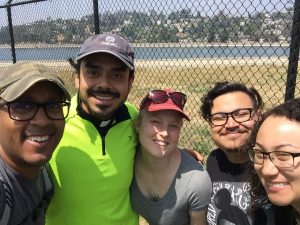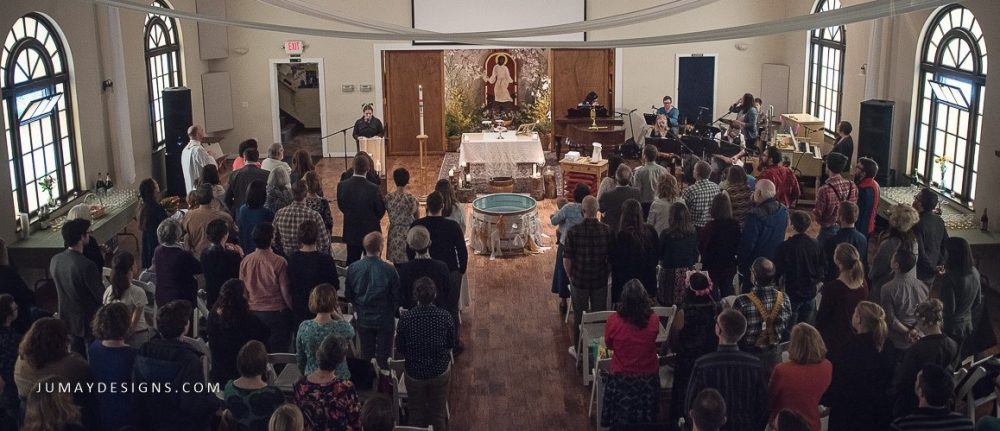
Pastor Joseph Castañeda Carrera (shown second from left), with members of the ADORE LA faith community.
ADORE LA is seeking new and creative ways to do church in the city of Los Angeles. This LGBTQIA+ faith community outside of Hollywood is passionately living out their mission: “Gather as we are. Reclaim faith for everyone, anywhere.”
What started as an idea to reach out to queer and trans people of color for Joseph Castañeda Carrera turned into a mission to grow a vital faith community. Launched in 2017, ADORE LA is a Synod Authorized Worshiping Community (SAWC) developed in partnership with the Congregational Vitality team at the Evangelical Lutheran Church in America and the Southwest California Synod.
This partnership helped Castañeda Carrera make a dream reality. It is a dream held in common with many in LA — to grow an inclusive, God-centered community “driven and led by people of color and queer folks.”
As mission developer pastor for ADORE LA, Castañeda Carrera self-describes as, “a queer man of color, a husband, a son of both an immigrant and a fourth-generation parent of Mexican heritage, an artist and an outdoor enthusiast.” Castañeda Carrera is “a SoCal-rooted pastor who is passionate about sharing a loving and liberating God, reclaiming faith with queer people, undoing religious hurt and connecting with others on a journey struggle and faith.” This diverse perspective and passion are what motivate Castañeda Carrera to empower leaders who want to strengthen their walk with God.
Creative practice
ADORE LA places a strong emphasis on doing church outside church walls — experiencing God in unconventional ways. Castañeda Carrera explains: “We try to create our gatherings where people already are and bring liturgy there.” One way they do this is through ADORE Hike. On select weekends, a group gathers for a hike intentionally centered on personal reflection and community. On the hike up, they will spend time praying for things pressing on their hearts; at the top, they will share communion; and on the hike down, they will prepare to go into the world and love God well.
Other ministry initiatives are held in a public or shared space, such as ADORE Brunch or Worship Lab. As a result of this visible display of community, “People can walk up to us because they are so curious about our faith. We should bring our love for God outside of closed doors.” Encouraging this creative practice is what makes ADORE LA unique.
Creative space
Castañeda Carrera is focused on making space for an authentic liberating theology, with a goal to heal the hurt caused by the church. ADORE LA’s core values underscore this commitment, including love, truth, inclusivity, creativity and authenticity. “I may spend the rest of my life undoing the pain that the church has done in the past,” Castañeda Carrera explained. Yet, for the LGBTQIA+ community, “it is a matter of feeling brave in these church spaces that gives people the confidence to live out their faith in a profound way.” ADORE LA chooses to walk alongside people in this process and provide a community of love that is needed for any follower of Christ. Visit http://adorela.org/adorela to learn more.
by Blake Thomas, Congregational Vitality
edited by Kris A. Mainellis, Program Director for Communication and Events, Congregational Vitality

